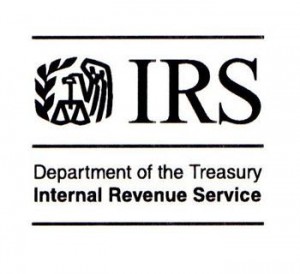 On July 21, 2015, the Internal Revenue Service (“IRS”) issued Announcement 2015-19, in which it announced that it would be making substantial changes to the determination letter program intended to allow retirement plan sponsors to ensure that their plans are qualified (eligible for tax benefits). This announcement will affect all retirement plans intended to be qualified, but will create particular issues for plans maintained by governmental employers (“governmental plans”). Read more.
On July 21, 2015, the Internal Revenue Service (“IRS”) issued Announcement 2015-19, in which it announced that it would be making substantial changes to the determination letter program intended to allow retirement plan sponsors to ensure that their plans are qualified (eligible for tax benefits). This announcement will affect all retirement plans intended to be qualified, but will create particular issues for plans maintained by governmental employers (“governmental plans”). Read more.
Tag Archives: public plans
Governmental Plan Determination Letters: Last Chance?
EEOC: Discrimination based on sexual orientation or transgender status is prohibited sex discrimination
(Posted on May 12, 2015 by Carol V. Calhoun)
 Federal law contains provisions forbidding discrimination based on several classifications: race, sex, veteran status, etc. However, no federal law explicitly prohibits discrimination based on sexual orientation or transgender status. As a result, many employers in states which do not have their own legislation barring discrimination based on sexual orientation or transgender status have assumed that no laws prohibited such discrimination.
Federal law contains provisions forbidding discrimination based on several classifications: race, sex, veteran status, etc. However, no federal law explicitly prohibits discrimination based on sexual orientation or transgender status. As a result, many employers in states which do not have their own legislation barring discrimination based on sexual orientation or transgender status have assumed that no laws prohibited such discrimination.
The Equal Employment Opportunity Commission (“EEOC”) has now called this assumption into question, by bringing several lawsuits treating discrimination based on sexual orientation or transgender status as a form of sex discrimination prohibited by Title VII of the Civil Rights Act of 1964. This issue is a focus of the EEOC’s Strategic Enforcement Plan for 2013-2016. Read more.
Can a state retirement system deny benefits to felons? It’s complicated.
(Posted on May 12, 2015 by Carol V. Calhoun)
 Many state laws provide that an individual who commits a felony related to his or her official duties will forfeit benefits under the state retirement system. It is clear that such provisions in a pension plan are permissible if they were included in a pension plan on its adoption, or if they apply only to employees hired after the provision was adopted. However, two states (New York and California) have recently struggled with the issue of whether such a provision can be effective with respect to employees hired before the adoption of the provision. Read more.
Many state laws provide that an individual who commits a felony related to his or her official duties will forfeit benefits under the state retirement system. It is clear that such provisions in a pension plan are permissible if they were included in a pension plan on its adoption, or if they apply only to employees hired after the provision was adopted. However, two states (New York and California) have recently struggled with the issue of whether such a provision can be effective with respect to employees hired before the adoption of the provision. Read more.
IRS Clarifies That Plans Do Not Necessarily Have to Recoup Overpayments
(Posted on April 26, 2015 by Carol V. Calhoun)
 What should a retirement plan sponsor do if it discovers that it has overpaid benefits to a retiree or other former employee? The question has recently arisen in the case of the pension plan of Pontiac, Michigan, which accidentally overpaid many of its retirees an average of $1,000 over a 16-month period. Read more.
What should a retirement plan sponsor do if it discovers that it has overpaid benefits to a retiree or other former employee? The question has recently arisen in the case of the pension plan of Pontiac, Michigan, which accidentally overpaid many of its retirees an average of $1,000 over a 16-month period. Read more.
Defined Benefit Versus Defined Contribution: Lessons from Utah
(Posted on April 26, 2015 by Carol V. Calhoun)
 The Pension Research Council of The Wharton School of the University of Pennsylvania has done a study on the effects of Utah’s change in its pension system. Before the change, employees participated in a defined benefit plan. Employees hired after the change were given a choice between a hybrid (defined benefit/defined contribution) plan or a straight defined contribution plan. Those who failed to make a choice were automatically assigned to the hybrid plan. In general, either of the new plans was less generous than the old defined benefit plan.
The Pension Research Council of The Wharton School of the University of Pennsylvania has done a study on the effects of Utah’s change in its pension system. Before the change, employees participated in a defined benefit plan. Employees hired after the change were given a choice between a hybrid (defined benefit/defined contribution) plan or a straight defined contribution plan. Those who failed to make a choice were automatically assigned to the hybrid plan. In general, either of the new plans was less generous than the old defined benefit plan.
In general, the Pension Research Council found that employees hired after the change had greater turnover than those hired before the change. Moreover, those electing into the hybrid plan were more likely to stay with the employer than those electing into the defined contribution plan. Those who defaulted into the hybrid plan had the highest turnover.
The Pension Research Council concluded that while the change may have saved the state money in pension costs, “public pension reformers must consider employee responses, in addition to potential cost savings, when developing and enacting major pension plan changes.”
Employee Benefits Effects of Treasury, IRS and Department of Labor Announcements That All Legal Same-Sex Marriages Will Be Recognized For Federal Tax Purposes
(Posted on February 23, 2015 by Carol V. Calhoun)
 This post was updated on June 26, 2015 to reflect the Supreme Court’s decision in Obergefell v. Hodges, which struck down all state bans on same-sex marriage.
This post was updated on June 26, 2015 to reflect the Supreme Court’s decision in Obergefell v. Hodges, which struck down all state bans on same-sex marriage.
The Treasury Department and the IRS announced on August 29, 2013 that all legal same-sex marriages will be recognized for federal tax purposes. On September 18, 2013, the Department of Labor took the same position for purposes of the Employee Retirement Income Security Act of 1974 (“ERISA“). The announcements and corresponding revenue ruling
Because employee benefit plans are extensively regulated by federal law, this announcement means that all employers will be required to recognize such marriages for many employee benefits purposes. Conversely, employers in states that treat civil unions or domestic partnerships as if they were marriages will nevertheless be forbidden from treating such arrangements as marriages for certain employee benefits purposes. However, the precise impact will depend on whether the plan is subject to ERISA or whether it is a governmental or church plan exempt from ERISA. The chart below sets forth areas in which the announcement will affect the operation of different types of plans.
IRS opens determination letter process for governmental plans
(Posted on February 1, 2015 by Carol V. Calhoun)
 In recent years, the Internal Revenue Service (“IRS”) has been allowing plan sponsors to request determination letters on the qualified status of their retirement plans only during certain periods (cycles). For individually designed governmental plans, such a cycle (Cycle E) opened on February 1, 2015, and will remain open until January 31, 2016. Read more
In recent years, the Internal Revenue Service (“IRS”) has been allowing plan sponsors to request determination letters on the qualified status of their retirement plans only during certain periods (cycles). For individually designed governmental plans, such a cycle (Cycle E) opened on February 1, 2015, and will remain open until January 31, 2016. Read more
IRS Updates Guidance on Governmental Plan Determination Letters
(Posted on October 9, 2014 by Carol V. Calhoun)
 As of October 9, 2014, the Internal Revenue Service has updated its page on determination letters for governmental plans. The page contains information for any governmental plan considering obtaining an IRS determination letter, including the following: Read more
As of October 9, 2014, the Internal Revenue Service has updated its page on determination letters for governmental plans. The page contains information for any governmental plan considering obtaining an IRS determination letter, including the following: Read more
OPM Finalizes Long-Awaited Phased Retirement Regulations for Federal Government
(Posted on August 8, 2014 by Carol V. Calhoun)
 Highlights of the regulations, as issued by the Office of Personnel Management (OPM) today: Read more
Highlights of the regulations, as issued by the Office of Personnel Management (OPM) today: Read more
Judge in Detroit Bankruptcy Case Denies Any Special Protections for Pensions
(Posted on December 5, 2013 by Carol V. Calhoun)
 Judge Steven W. Rhodes of the U.S. Bankruptcy Court for the Eastern District of Michigan had now issued an opinion stating that the bankruptcy proceedings for the City of Detroit can go forward. The opinion provided no special protections for as yet unfunded pension benefits (although benefits already in the pension funds were protected). The judge rejected a contention that Michigan constitutional provisions prohibiting impairment of pensions would provide protection to promised but unfunded benefits.
Judge Steven W. Rhodes of the U.S. Bankruptcy Court for the Eastern District of Michigan had now issued an opinion stating that the bankruptcy proceedings for the City of Detroit can go forward. The opinion provided no special protections for as yet unfunded pension benefits (although benefits already in the pension funds were protected). The judge rejected a contention that Michigan constitutional provisions prohibiting impairment of pensions would provide protection to promised but unfunded benefits.
“The accrued financial benefits of each pension plan and retirement system of the state and its political subdivisions shall be a contractual obligation thereof which shall not be diminished or impaired thereby.” [Article IX, Section 24, Michigan Constitution]
